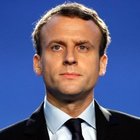The leaders exchanged views on the measures that both countries are taking to combat the coronavirus. The main topic of conversation, though, was the issue of providing Russia with long-term and legally binding security guarantees, including in the wake of recent Russia-US talks in Geneva and a NATO-Russia Council meeting in Brussels.
Vladimir Putin made it clear that the Russian side would carefully study the written responses to the draft agreements on security guarantees received from the United States and NATO on January 26, after which it would decide on further action.
At the same time, attention was drawn to the fact that the US and NATO responses did not address Russia’s fundamental concerns such as stopping NATO expansion, not deploying assault weapons near Russia’s borders, or rolling NATO’s military capacity and infrastructure in Europe back to where they were in 1997 when the NATO-Russia Founding Act was signed.
The key question on the United States and its allies’ plans to follow the principle of the indivisibility of security was ignored. This principle is enshrined in the OSCE and NATO-Russia basic documents and stipulates that no one should strengthen their security at the expense of the security of other countries.
When discussing the situation in Ukraine, Vladimir Putin emphasised the importance of Kiev’s strict compliance with the provisions of the Minsk Package of Measures and other agreements, primarily on establishing a direct dialogue with Donetsk and Lugansk and legalising the special status of Donbass. Based on the outcome of the meeting of political advisers to the leaders of the Normandy four countries held in Paris on January 26, the parties reaffirmed their commitment to continuing working in this format.
With regard to France's chairmanship of the EU Council in the first half of 2022, Emmanuel Macron briefed Vladimir Putin on Paris's approaches to the pan-European track. It was agreed to continue the Russian-French dialogue on the entire range of European security issues.
The state of affairs around the Joint Comprehensive Plan of Action (JCPOA) on the Iranian nuclear programme was reviewed. The proximity of Russia’s and France’s positions on this was noted. Both countries strongly support continuing international efforts to maintain and implement the JCPOA, and UN Security Council Resolution 2231.
Some practical aspects of bilateral cooperation, including nuclear energy, were discussed.
The President of Russia and the President of France agreed to stay in close communication.
